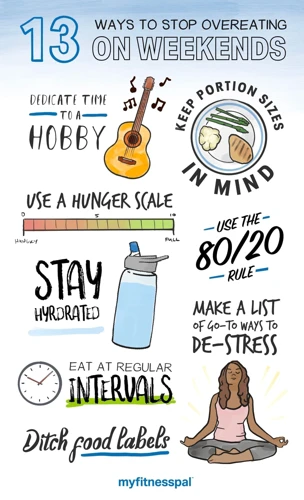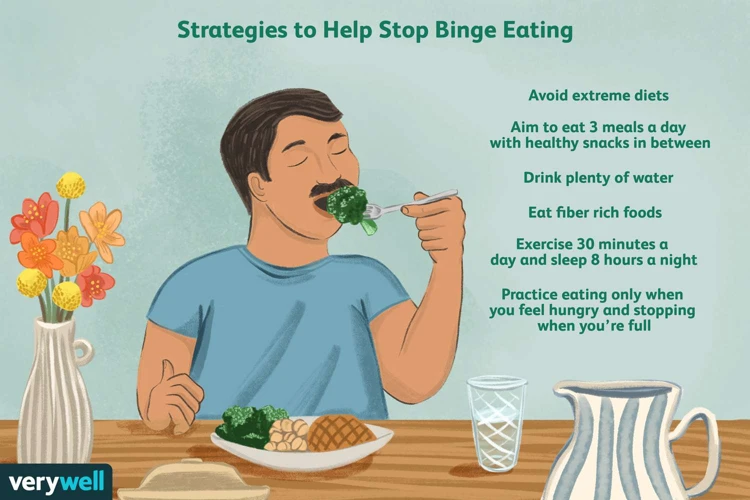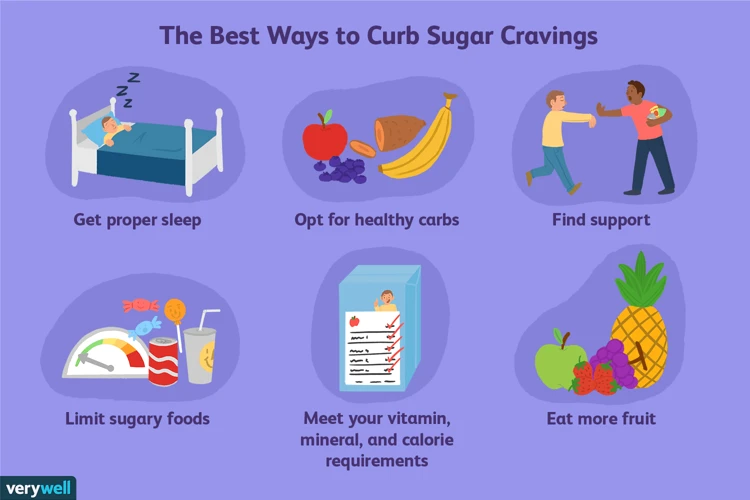Introduction

One of the most challenging aspects of weight loss is managing hunger and controlling cravings. There’s nothing more frustrating than feeling like you’re doing all the right things, only to be sabotaged by seemingly uncontrollable urges to snack on unhealthy foods. One simple and effective way to combat these cravings is by paying closer attention to your water intake. Not only is drinking water essential for overall health, but it can also be a powerful tool in curbing cravings and managing hunger. In this article, we’ll explore the science behind how water intake impacts our appetite, and offer practical strategies for how you can use this knowledge to support your weight loss goals.
Why is water intake important while trying to lose weight?
Water intake is a critical aspect of weight loss and overall health. Keeping yourself hydrated with water offers several benefits that can help you achieve your weight loss goals. Here are some of the reasons why water intake is important while trying to lose weight:
- Water can help reduce appetite: Drinking water before meals can help fill up your stomach and reduce your appetite. This can lead to consuming fewer calories, which is essential for weight loss.
- Water can increase calorie burn: Drinking water can help increase your metabolism, which in turn can increase the number of calories you burn throughout the day.
- Water can reduce water weight: When your body is dehydrated, it tends to retain water. Drinking enough water can help reduce water weight, which can cause bloating and puffiness around your body.
- Water can aid in digestion: Consuming water can help your body break down food and move it along the digestive tract smoothly, thus reducing constipation.
- Water can help with muscle function: Drinking enough water can also help with muscle function during exercise. This is essential to increasing performance and reducing the risk of injury.
Drinking enough water is an essential component of a healthy lifestyle, and it can be especially important when trying to lose weight. By incorporating water intake into your weight loss journey, you can take advantage of its many benefits and support your efforts towards achieving your goals.
How much water should you drink?

When it comes to the amount of water you should be drinking, the answer is not as simple as a one-size-fits-all approach. There are several factors that can impact your individual water intake needs, and it’s important to take these into consideration to ensure you are adequately hydrated. Let’s dive deeper into understanding the factors that can impact your water intake needs and the recommended water intake guidelines.
Factors that impact your water intake needs
Various factors can impact an individual’s water intake needs. The following table illustrates some of the factors that affect how much water one should drink each day:
| Factor | Description |
| Body weight | The more body weight you have, the more water you need to drink to keep your body hydrated. |
| Physical activity level | The more active you are, the more water you need to replenish the fluids lost through sweating. |
| Climate | In hot and humid weather conditions, your body tends to lose more fluids, increasing your water intake needs. |
| Diet | A diet rich in fiber requires more water to aid in digestion and prevent constipation. |
| Medical conditions | Individuals with certain medical conditions like kidney stones, urinary tract infections, or diabetes may require higher water intake levels. |
It is imperative to bear in mind that every individual has different water intake needs based on their physical attributes and daily activities. It is crucial to monitor your water intake and make sure that you are drinking sufficient water to maintain good health, especially when attempting to lose weight.
Water intake recommendations
It is important to ensure proper hydration when trying to curb cravings and manage hunger. The adequate amount of water a person should drink on a daily basis varies based on several factors which include age, gender, body weight, activity levels, and climate.
Here are some general water intake recommendations:
- For men: Drink at least 3.7 liters of water per day.
- For women: Drink at least 2.7 liters of water per day.
- If you are physically active, increase your water intake by 1-2 cups per hour of exercise.
- If you are in a hot and humid climate, it is recommended to drink more water to compensate for the increased sweating.
- If you are pregnant or breastfeeding, you should aim to drink more water to support the additional fluid requirements of your body.
- Remember to spread your water intake throughout the day to avoid drinking too much water at once.
Keep in mind that these recommendations are just general guidelines and may not apply to everyone. It is important to listen to your body and adjust your water intake accordingly. If you are unsure about how much water you should be drinking, consult with a healthcare professional.
Best water intake strategies to curb cravings

Staying hydrated is essential when trying to lose weight and manage hunger. However, did you know that water intake can also help curb cravings? By implementing a few simple strategies, you can use water to your advantage in your weight loss journey. Here are some effective approaches to incorporating more water intake to help you control your cravings and manage hunger:
Drink water before meals
One effective strategy to curb cravings and manage hunger is to drink water before meals. This can help you feel fuller and more satisfied, making it easier to control your portion sizes and resist the temptation to snack on unhealthy foods throughout the day.
To make the most of this strategy, it’s important to understand how much water you should drink and when to drink it. Here are some tips to help you get started:
| Tip | Description |
| Drink water at room temperature | Cold water can shock your stomach and make you less hungry, but room temperature water is better for digestion and absorption. |
| Drink a glass of water before each meal | This can help you feel fuller and more satisfied, reducing your overall food intake. |
| Drink water instead of sugary drinks | Sugary drinks can contain a lot of empty calories and contribute to weight gain, so opt for water instead. |
| Add lemon or lime for flavor | Plain water can be boring, so try adding a wedge of lemon or lime for a burst of flavor without added calories. |
By following these tips, you can use water intake to help curb your cravings and manage your hunger more effectively. Give it a try and see how it works for you!
Flavor your water
One effective way to increase your water intake and curb cravings is to flavor your water. Simply adding a bit of flavor to your water can make it more enjoyable to drink, leading you to consume more water throughout the day.
There are a variety of ways to flavor your water, including adding fresh fruit, herbs, or spices. Here are some examples of flavorful additions you can try:
| Flavor additions | Benefits |
|---|---|
| Lemon or lime slices | Provides a refreshing, citrus taste while also boosting vitamin C intake |
| Cucumber slices | Imparts a light, refreshing flavor while also providing hydration and essential minerals |
| Berries | Adds natural sweetness and antioxidants to the water |
| Mint leaves | Offers a refreshing and cooling flavor while also aiding in digestion |
| Ginger | Provides a spicy, warming flavor that can help with digestion and immune system function |
Experiment with different flavors and combinations to find what you enjoy most. And remember, when adding any ingredients to your water, be sure to wash them thoroughly beforehand to remove any dirt or bacteria.
Consume water-rich foods
One of the best ways to increase your water intake and curb your cravings is to consume foods that are rich in water. Here are a few examples of water-rich foods that you can incorporate into your diet:
| Food | Water Content |
|---|---|
| Cucumber | 96% |
| Lettuce | 95% |
| Celery | 95% |
| Watermelon | 92% |
| Strawberries | 91% |
| Grapefruit | 90% |
These water-rich food options can help you stay hydrated and reduce your overall caloric intake by filling you up without adding many calories. In addition to being hydrating, many of these foods are also packed with nutrients and can boost your overall health.
Incorporating water-rich foods into your daily diet can help keep you feeling fuller for longer periods of time, which can reduce the likelihood of reaching for unhealthy snacks or overeating. So add some cucumbers to your salad, snack on some watermelon, and enjoy the hydrating benefits of these refreshing foods.
Other tips to control your cravings and manage hunger
As important as water intake may be for curbing cravings and managing hunger, there are a few other tips that can also prove to be effective. These tips include staying hydrated throughout the day, monitoring your caffeine intake, and getting enough sleep. Making small changes in these areas can greatly contribute to a successful weight loss journey. Let’s dive into each tip in detail.
Stay hydrated throughout the day
Maintaining hydration throughout the day is crucial for controlling cravings and managing hunger. Dehydration can often be mistaken for hunger, leading you to eat unnecessarily. To stay properly hydrated, you should aim to drink at least eight glasses of water a day. Here are some tips to stay hydrated:
- Carry a water bottle with you: Having a water bottle with you at all times ensures that you can hydrate anywhere and anytime. It also serves as a reminder to drink water throughout the day.
- Set reminders: To remind yourself to drink water, set alarms or notifications on your phone or computer. This can be especially helpful if you have a busy schedule that causes you to forget to drink enough water.
- Drink water with every meal: Drinking water with each meal ensures that you are hydrating regularly throughout the day. It can also help you feel fuller and prevent overeating.
- Choose water over sugary beverages: Sugary drinks may be tempting, but they can dehydrate you and lead to more cravings. Choosing water over sugary beverages can help you hydrate properly and maintain stable blood sugar levels.
- Eat foods with high water content: In addition to drinking water, consuming foods with high water content such as fruits and vegetables can help you stay hydrated throughout the day.
By making a conscious effort to stay hydrated throughout the day, you can decrease your likelihood of confusing thirst with hunger and curb your cravings.
Monitor your caffeine intake
Taking care of your caffeine intake is another important aspect of controlling your cravings and managing hunger. While caffeine does have some benefits, such as increasing energy and alertness, it can also interfere with your sleep and cause your body to become dehydrated. To ensure that your caffeine consumption is not causing any adverse effects on your weight loss journey, follow these tips:
Avoid excessive caffeine intake: Consuming too much caffeine in a day can lead to increased anxiety, heart palpitations, and disrupted sleep patterns. Limit your caffeine intake to 400 milligrams per day, which is equivalent to four cups of coffee.
Choose low-calorie caffeine sources: Some caffeine sources, especially those that are high in sugar, can add unnecessary calories to your diet. Opt for low-calorie caffeine sources such as black coffee or tea, or unsweetened energy drinks.
Monitor your caffeine intake timings: Caffeine consumption in the evening or late at night can lead to disrupted sleep, which can negatively impact hunger and cravings the next day. It is best to consume caffeine earlier in the day and give yourself enough time to digest it.
Be mindful of hidden caffeine sources: Some foods and medications, such as chocolate or headache medicine, may contain caffeine. Make sure to read labels carefully and be aware of these hidden sources.
By monitoring your caffeine intake, you can ensure that it is not interfering with your weight loss journey and is instead providing you with the benefits you need to stay alert and focused throughout the day.
Get enough sleep
One important aspect of controlling cravings and managing hunger is getting enough sleep. When you don’t get enough sleep, your body produces more of the hormone ghrelin, which stimulates appetite, and less of the hormone leptin, which suppresses appetite. As a result, lack of sleep can lead to increased hunger and cravings.
To ensure you are getting enough sleep, consider the following tips:
- Stick to a consistent sleep schedule: Try to go to bed and wake up at the same time every day, even on weekends. This helps regulate your body’s internal clock and improve the quality of your sleep.
- Create a relaxing sleep environment: Make sure your room is quiet, dark, and cool. Consider investing in comfortable bedding and pillows.
- Avoid Electronics: The blue light emitted by electronic devices can disrupt sleep. Try to avoid using them for at least an hour before bedtime.
- Avoid caffeine late in the day: Caffeine is a stimulant that can keep you awake. Be mindful of your caffeine intake, especially in the afternoon and evening.
- Reduce stress: Stress can interfere with your sleep. Consider practicing relaxation techniques, such as yoga or meditation, to help reduce stress levels and improve sleep quality.
By following these tips and prioritizing getting enough sleep, you can help regulate your appetite, reduce cravings, and manage hunger more effectively.
Conclusion
In conclusion, managing hunger and curbing cravings can be a difficult task, but water intake can be a helpful tool in achieving success. Making sure to drink enough water not only keeps you hydrated, but can also help you feel fuller for longer periods of time. It is important to remember that everyone’s water intake needs will differ based on their individual factors such as weight, activity level, and overall health.
In addition to staying hydrated, there are other strategies that can be implemented to curb cravings and manage hunger. One effective method is to drink water before meals, as this can help you feel full and potentially reduce the amount of food consumed. Another strategy is to flavor your water with fresh fruits or herbs to enhance its taste and make it more enjoyable. Consuming water-rich foods can also be helpful, as these can contribute to your overall daily water intake and provide additional nutrients.
It is also important to maintain adequate hydration throughout the day, as dehydration can sometimes be mistaken for hunger. Monitoring caffeine intake and getting enough sleep can also help regulate hunger hormones and reduce cravings.
Overall, incorporating water intake into your weight loss journey can lead to positive results, but it should not be the only solution. It is important to maintain a balanced diet and lifestyle in addition to staying hydrated. Remember to consult with a healthcare professional before making any significant changes to your diet or exercise routine.
Frequently Asked Questions
Can drinking water really help curb cravings?
Yes, drinking water before a meal can help you feel fuller and reduce the amount you eat, ultimately curbing cravings in the long run.
How much water should I drink per day?
It depends on various factors such as your age, weight, and activity level. Typically, it is recommended to drink at least 8 glasses of water (64 ounces) per day.
Can flavored water help with curbing cravings?
Yes, drinking flavored water can be a great way to add variety to your water intake and keep you motivated to drink more. Be aware of added sugars in flavored water and opt for natural flavorings such as fruit slices or herbs.
What are some water-rich foods that can help curb cravings?
Watermelon, cucumbers, strawberries, and lettuce are some examples of water-rich foods that can be incorporated into your diet to help manage hunger.
Does dehydration contribute to cravings?
Yes, dehydration can often be misinterpreted as hunger and can lead to excess snacking. It’s important to stay hydrated throughout the day to prevent unnecessary cravings.
Can drinking more water help with weight loss?
Drinking more water can indirectly help with weight loss by reducing the amount you eat and helping you feel fuller. However, it is not a magic solution and must be part of a well-rounded diet and sustainable lifestyle changes.
Can drinking water help with overeating?
Yes, drinking water before a meal can help you feel fuller and reduce the amount you eat, ultimately controlling overeating habits.
Does coffee or tea count towards my daily water intake?
Coffee and tea do contribute towards your daily water intake, but they also have diuretic effects, which can increase the need for more water consumption.
Can drinking water affect my energy levels?
Yes, staying hydrated throughout the day can improve energy levels and prevent feelings of fatigue often associated with dehydration.
What are the risks of not drinking enough water?
Dehydration can lead to a variety of health issues such as headaches, dizziness, and low blood pressure. Long-term dehydration can also affect kidney function and lead to more serious problems.







